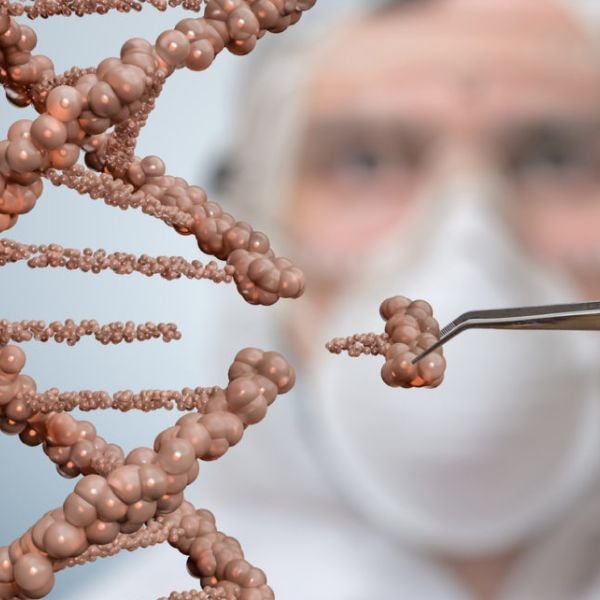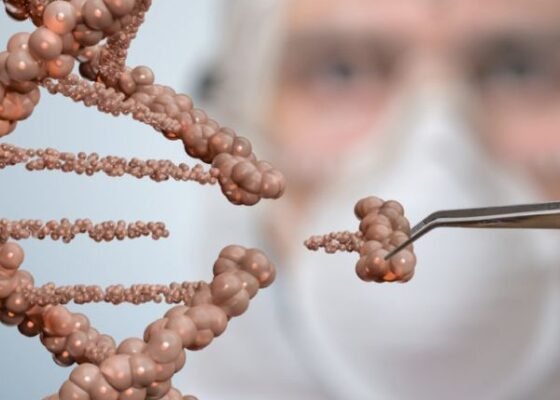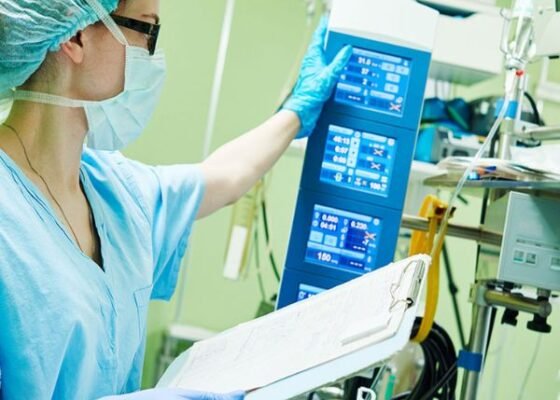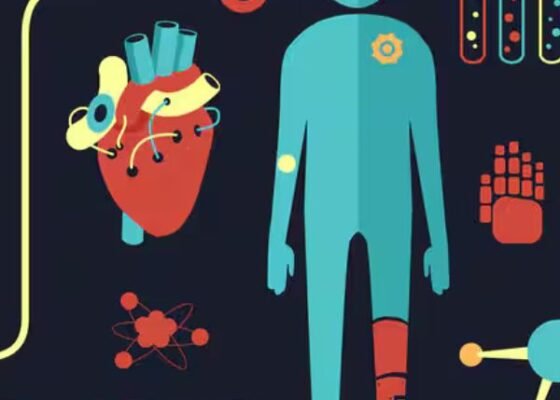Medical Genetics Colleges in Bangalore
Table of Contents
ToggleWhat is Medical Genetics?
Medical genetics is an interdisciplinary field that seeks to understand the genetic factors underlying human health and disease.
It is a rapidly growing area of medicine that combines elements of genetics, molecular biology, and clinical medicine to study the impact of genes on human health.
This field has contributed significantly to our understanding of heritable disorders and has led to the development of ground-breaking therapies and diagnostics.
In this article, we will delve into the fascinating world of medical genetics, exploring its history, key principles, and applications.
A Brief History of Medical Genetics
The origins of medical genetics can be traced back to the late 19th and early 20th centuries when scientists like Gregor Mendel and Thomas Hunt Morgan made critical discoveries about inheritance patterns and the role of chromosomes in genetic transmission. However, the field truly began to flourish in the 1950s with the discovery of the DNA double helix structure by James Watson and Francis Crick. Since then, advancements in molecular biology and sequencing technology have propelled medical genetics forward, making it an essential component of modern medicine.
Understanding Genetic Disorders
Genetic disorders are diseases or conditions caused by abnormalities in an individual’s DNA. These abnormalities can range from single nucleotide changes to large chromosomal alterations. Genetic disorders can be classified into four main categories:
Single-gene disorders: These are caused by mutations in a single gene and include conditions like cystic fibrosis, sickle cell anaemia, and Huntington’s disease.
Chromosomal disorders: Resulting from structural abnormalities or numerical changes in chromosomes, these include conditions like Down syndrome, Turner syndrome, and Klinefelter syndrome.
Multifactorial disorders: These disorders are influenced by a combination of genetic and environmental factors. Examples include heart disease, diabetes, and some cancers.
Mitochondrial disorders: Caused by mutations in the mitochondrial DNA, these are relatively rare and include conditions like Leber’s hereditary optic neuropathy and mitochondrial myopathy.
Diagnosis and Screening
Medical genetics plays a crucial role in diagnosing genetic disorders, guiding healthcare providers to develop personalized treatment plans. Diagnostic techniques in medical genetics include:
Cytogenetic analysis: Examining chromosomes under a microscope to identify structural or numerical abnormalities.
Molecular genetic testing: Analyzing DNA sequences to detect gene mutations or other genetic changes.
Biochemical genetic testing: Measuring the activity of specific proteins or enzymes to determine if a genetic disorder is present.
In addition to diagnosis, medical genetics has a significant role in genetic screening. Prenatal, new-born, and carrier screenings are performed to identify individuals at risk for specific genetic disorders, allowing for early intervention and management.
Therapeutic Advances
Medical genetics has paved the way for numerous therapeutic breakthroughs, including:
Gene therapy: A revolutionary technique that introduces, removes, or replaces genetic material to treat or prevent genetic disorders. For example, Luxturna is a gene therapy approved for the treatment of a rare inherited form of blindness.
Pharmacogenomics: A field that studies how an individual’s genetic makeup influences their response to drugs. This knowledge helps healthcare providers prescribe the most effective medications and dosages, minimizing adverse effects.
Precision medicine: An approach that tailors medical treatments to an individual’s genetic profile, ensuring the most effective therapies are used to target specific diseases.
Top Medical Genetics Colleges in Bangalore
Bangalore, also known as the Silicon Valley of India, is renowned for its technological advancements and educational institutions. The city is home to several prestigious colleges and universities, offering a wide range of disciplines for students to explore. Among these, the field of medical genetics has been steadily gaining traction, with an increasing number of institutions providing specialized courses in this cutting-edge domain. In this article, we will provide an overview of the top medical genetics colleges in Bangalore, highlighting their unique features and academic offerings.
Bangalore Medical College and Research Institute (BMCRI)
Founded in 1955, Bangalore Medical College and Research Institute (BMCRI) is one of the city’s oldest and most prestigious medical institutions. It has gained a reputation for its comprehensive curriculum and state-of-the-art research facilities. BMCRI offers a Medical Genetics program that combines theoretical knowledge and practical training to ensure students are well-equipped for a career in this dynamic field. The college collaborates with numerous hospitals and research institutions, providing students with invaluable exposure and hands-on experience.
St. John’s Medical College
St. John’s Medical College is a leading institution in Bangalore known for its emphasis on research and innovation. Established in 1963, the college is affiliated with the Rajiv Gandhi University of Health Sciences (RGUHS). St. John’s offers a Medical Genetics program that focuses on both basic and advanced principles of genetics, molecular biology, and clinical applications. The college’s state-of-the-art laboratories and experienced faculty provide students with the necessary resources to excel in their studies and research.
Ramaiah Medical College
Ramaiah Medical College, established in 1979, is a premier institution in Bangalore dedicated to providing quality education and fostering a research-oriented environment. Affiliated with RGUHS, the college offers a Medical Genetics program that combines in-depth theoretical knowledge with practical training in genetics, genomics, and molecular diagnostics. Ramaiah Medical College boasts a well-equipped research center and extensive collaboration with industry partners, ensuring students have ample opportunities for hands-on experience and networking.
Kempegowda Institute of Medical Sciences (KIMS)
Kempegowda Institute of Medical Sciences (KIMS) is a reputed medical institution in Bangalore, founded in 1980. Affiliated with RGUHS, KIMS is recognized for its commitment to academic excellence and research. The college offers a Medical Genetics program that emphasizes the genetic basis of human diseases, diagnostic techniques, and therapeutic approaches. KIMS’ state-of-the-art facilities, experienced faculty, and strong industry ties provide students with the resources and opportunities necessary for a successful career in medical genetics.
Vydehi Institute of Medical Sciences and Research Centre
Vydehi Institute of Medical Sciences and Research Centre, established in 2000, is a renowned institution in Bangalore that focuses on integrating education, research, and healthcare services. Affiliated with RGUHS, the college offers a Medical Genetics program that encompasses various aspects of genetics, genomics, and personalized medicine. With a well-equipped research center and an emphasis on practical training, Vydehi Institute provides students with the knowledge and skills required to excel in the field of medical genetics.
What students study in Medical Genetics in Bangalore?
The field of medical genetics is an interdisciplinary domain that combines genetics, molecular biology, and clinical medicine to explore the role of genes in human health and disease. As our understanding of genetics has advanced, the importance of medical genetics in diagnostics, therapeutics, and personalized medicine has grown exponentially. Students pursuing a career in this fascinating area will study a variety of subjects and acquire essential skills to excel in the field. In this article, we will delve into the key topics and areas of study that students can expect to encounter in a medical genetics program.
Fundamentals of Genetics
Students pursuing medical genetics will first gain a solid foundation in the principles of genetics. This includes understanding the structure and function of DNA, RNA, and proteins, as well as the mechanisms of gene expression, regulation, and inheritance. Students will also learn about the molecular basis of genetic variation and the role of mutations in human disease.
Genomics and Bioinformatics
In the era of next-generation sequencing and big data, the study of genomics and bioinformatics is crucial for students in medical genetics. Genomics involves the comprehensive analysis of entire genomes, while bioinformatics focuses on the development and application of computational tools to analyze and interpret complex genetic data. Students will learn how to use various bioinformatics tools and databases to uncover the genetic basis of diseases and identify potential therapeutic targets.
Cytogenetics
Cytogenetics is the study of chromosomes and their role in heredity, disease, and development. Students will learn about chromosomal abnormalities, such as structural rearrangements, duplications, deletions, and aneuploidies, and their implications in various genetic disorders. They will also explore techniques used in cytogenetic analysis, including karyotyping, fluorescence in situ hybridization (FISH), and comparative genomic hybridization (CGH).
Molecular Diagnostics and Genetic Testing
Medical genetics students will study various molecular diagnostic techniques used to identify and characterize genetic mutations and abnormalities. They will learn about methods such as PCR, DNA sequencing, gene expression analysis, and genome-wide association studies (GWAS). Additionally, students will explore different types of genetic testing, including prenatal, newborn, and carrier screening, as well as their ethical, legal, and social implications.
Genetic Counseling and Risk Assessment
A critical aspect of medical genetics is the ability to communicate complex genetic information to patients and their families. Students will learn the principles of genetic counseling, including risk assessment, informed consent, and the psychosocial aspects of genetic testing. They will also gain skills in interpreting and communicating genetic test results, providing support and guidance to patients making decisions about their healthcare.
Clinical and Therapeutic Applications
Students in medical genetics will explore various clinical applications of genetics, including the diagnosis, management, and treatment of genetic disorders. They will study the principles of gene therapy, pharmacogenomics, and precision medicine, and learn how these approaches can be used to develop targeted treatments for various genetic conditions.
Scope after Studying Medical Genetics in Bangalore
Medical genetics is a rapidly growing field that offers a wealth of opportunities for those who have completed their studies in this interdisciplinary domain. With advancements in genomics, bioinformatics, and personalized medicine, the demand for professionals with expertise in medical genetics has never been higher. In this article, we will explore the diverse career paths and opportunities that await graduates in medical genetics, highlighting the scope and potential for growth in this exciting field.
Clinical Geneticist
Clinical geneticists are medical doctors who specialize in the diagnosis, management, and treatment of genetic disorders. They work closely with patients and their families to provide genetic counselling, risk assessment, and personalized treatment plans. Clinical geneticists are employed in various settings, including hospitals, academic medical centers, and specialized genetic clinics. To become a clinical geneticist, individuals must complete medical school and a residency in medical genetics or a related specialty, followed by board certification.
Genetic Counselor
Genetic counselors are healthcare professionals who help patients and their families understand and cope with genetic disorders and the implications of genetic testing. They assess the risk of inheriting genetic conditions, provide education about testing options, and support patients in making informed decisions about their healthcare. Genetic counselors work in various settings, including hospitals, private clinics, and research institutions. A master’s degree in genetic counseling and board certification is typically required to enter this profession.
Research Scientist
Medical genetics graduates with an interest in research can pursue a career as a research scientist in academia, industry, or government institutions. Research scientists in medical genetics investigate the genetic basis of diseases, develop novel diagnostic tools, and contribute to the advancement of gene therapies and personalized medicine. A Ph.D. in medical genetics or a related field is typically required for a career in research, although some positions may be available to those with a master’s degree.
Laboratory Geneticist
Laboratory geneticists work in diagnostic and clinical laboratories, performing genetic testing and analyzing results to help diagnose and manage genetic conditions. They may specialize in areas such as cytogenetics, molecular genetics, or biochemical genetics. Laboratory geneticists are responsible for developing, implementing, and maintaining quality control measures to ensure the accuracy and reliability of genetic tests. A master’s degree or Ph.D. in medical genetics or a related field, along with relevant certifications, may be required for this role.
Pharmaceutical and Biotechnology Industry
Graduates in medical genetics can find rewarding careers in the pharmaceutical and biotechnology industry. They may work in drug discovery and development, focusing on the identification and validation of genetic targets for new therapies. Other roles may include working in regulatory affairs, clinical trial management, or medical affairs, where medical geneticists can leverage their expertise to guide the development and approval of novel treatments.
Public Health and Policy
Medical genetics professionals can also contribute to public health by working in government agencies, non-profit organizations, or global health initiatives. They may be involved in the development of policies and guidelines related to genetic testing, research, and treatment, or they may work on projects aimed at improving access to genetic services and reducing health disparities. A background in public health, policy, or a related field may be beneficial for these roles.
Placement Opportunities after Studying Medical Genetics in Bangalore
Medical genetics, an interdisciplinary field that merges genetics, molecular biology, and clinical medicine, is becoming increasingly essential in modern healthcare. As advancements in genomics and personalized medicine continue to revolutionize diagnostics and therapeutics, demand for professionals with expertise in medical genetics is on the rise. In this article, we will explore the diverse placement opportunities available to graduates in medical genetics and how they can leverage their skills and knowledge to secure fulfilling positions in various sectors.
Healthcare Institutions
Healthcare institutions such as hospitals, genetic clinics, and diagnostic laboratories offer a range of placement opportunities for medical genetics graduates. They can work as clinical geneticists, laboratory geneticists, or genetic counsellors, providing specialized services to patients and their families. These roles involve diagnosing genetic disorders, managing patient care, interpreting genetic test results, and offering genetic counselling. To secure placements in healthcare institutions, graduates should focus on building clinical and diagnostic skills through internships, fellowships, or specialized training programs.
Academic Institutions and Research Centers
Academic institutions and research centers provide excellent placement opportunities for medical genetics graduates interested in pursuing research and education. They can work as research scientists, faculty members, or laboratory technicians, contributing to the advancement of medical genetics knowledge and training the next generation of professionals. To secure placements in academia and research, graduates should focus on developing a strong research background, publishing papers, and presenting their work at conferences.
Pharmaceutical and Biotechnology Companies
The pharmaceutical and biotechnology industries offer exciting placement opportunities for medical genetics graduates. They can work in drug discovery, preclinical research, clinical trial management, regulatory affairs, or medical communications. In these roles, medical geneticists contribute to the development of novel gene therapies, personalized medicine approaches, and innovative diagnostic tools. To secure placements in the pharmaceutical and biotechnology sectors, graduates should focus on building industry-specific skills and knowledge through internships, industry-sponsored research projects, or specialized training programs.
Government Agencies and Non-profit Organizations
Medical genetics graduates can also find placement opportunities in government agencies and non-profit organizations focused on public health, genetics research, and advocacy. These roles may involve developing policies and guidelines related to genetic testing, research, and treatment, or working on projects aimed at improving access to genetic services and reducing health disparities. To secure placements in government agencies and non-profit organizations, graduates should focus on developing skills in public health, policy, and project management.
Genetic Testing and Counselling Companies
With the increasing popularity of direct-to-consumer genetic testing and the growing need for specialized genetic counselling services, medical genetics graduates can find placement opportunities in genetic testing and counselling companies. They can work as genetic counsellors, sales representatives, or product specialists, helping to educate consumers and healthcare providers about the benefits and limitations of genetic testing. To secure placements in genetic testing and counselling companies, graduates should focus on developing strong communication skills, as well as an understanding of the legal, ethical, and social implications of genetic testing.
Conclusion
Medical genetics has come a long way since its inception, and its discoveries have transformed our understanding of the genetic basis of disease. As technology continues to advance, the field of medical genetics promises even greater insights into human health and personalized medical care. By bridging the gap between genetics, molecular biology, and clinical medicine, medical genetics stands at the forefront of a new era in healthcare.
The field of medical genetics offers a wealth of placement opportunities for graduates, spanning a range of sectors and roles. By leveraging their specialized knowledge and skills, medical genetics graduates can secure fulfilling positions in healthcare, research, industry, government, and beyond. As the importance of personalized medicine and genetic technologies continues to grow, the demand for professionals in medical genetics is only set to increase, providing graduates with a promising and dynamic career landscape.





